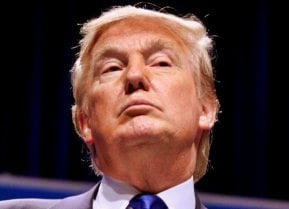Robert F. Kennedy Jr: The Counter-Extremist Candidate
Kennedy is a candidate who set out to achieve moderate goals, like home ownership for young Americans and enforcement of immigration laws, through the immoderate means of breaking free from the Democratic Party and aiming to become the first elected independent president in 235 years.
A new book by Tom Schaller and Paul Waldman caused controversy during its publication week over its apparent targeting of the only demographic in America that it’s popular to hate. In White Rural Rage, the authors argue that white Americans are a “threat” to America, positioning them as the “racist,” “conspiracist,” “anti-democratic,” and “most likely to excuse violence.”
While arguing that rural American voters are a danger to the rest of the country, the authors simultaneously theorize that they are also a victim of the Republican Party – and in doing so, they unknowingly reveal the true source of America’s polarization problem.
“In 2024 and beyond, whenever Republicans lose an election, they will say to their supporters broadly and to rural Whites in particular, ‘Look what they took from you…Democracy has failed you, your enemies have seized control and are coming to annihilate you, and the only answer is to hack away at the foundations of the system that allowed such a thing to occur,’” the authors write.
In effect, the men dismiss the concerns of this community as a largely imaginary conspiracy dreamed up by power-hungry Republicans. It’s a form of deliberately misleading mental gymnastics that is symptomatic of a pandemic of partisanship in this country that is quickly evolving into full-blown factionalism. What these liberal authors wrote is, of course, profoundly illiberal in that it calls on white, rural communities to fall into line with what the government says about everything. It also suggests that white, rural Americans are literally incapable of expressing genuine concern about political issues that impact them the most. To authors like this, white Americans never experience real pain, endure hardship, or face discrimination - and if they do, they don’t deserve political representation, advocacy, or support in any form, anyway.
Whether they know it or not, these two men – and many other authors and pundits like them – are contributing to the very problem that they claim to care about. White nationalism, like other forms of extremism, doesn’t typically occur in a void. Like black nationalism or anti-capitalist protest movements, political extremism is the product of neglect from this country’s leaders and their refusal to address contentious issues that matter. In America, we face a multi-faceted threat from extremists of various stripes, and while the left and right disagree on who may count as an extremist, or which side is the most radical, the one thing that they do have in common is their collective refusal to address the issues that drive the extremists from the opposing political camps.
On the right, we see the genuine pain of some social justice campaigners dismissed entirely, because of the existence of other campaigners who seek to make grievance profitable or divisive. Bad faith actors on the left, of which there are many, do not invalidate the struggles of those who do act in good faith. Alternatively, from the left of politics we see an entire class of Americans – the white, working man – disparaged, demeaned, and discriminated against in favor of so-called “tolerance” and “decency.”
In seeking either truth or justice, both sides of the political aisle utterly fail to see what is driving this crisis of polarization. It is not just their refusal to consider the possibility that anybody other than their ideological clones can ever say or do anything good, but their unwillingness to address issues affecting most Americans that is powering this nation-spanning ideological war that has pulled politics into the gutter and pitted one half of America against the other. Ignore immigration, for example, and the far-right – rather than the mainstream GOP as Schaller and Waldman argue - can easily prey on impacted communities for support.
Poll after poll shows, however, that these issues do not need to be so divisive. In the real world, most of America agrees on the issues that the Democrats and Republicans have decided to make partisan.
On the matter of abortion, Pew Research data shows that 56% of U.S. adults say that the stage of pregnancy should be a factor in determining the legality of abortion, while 71% in total said that abortion should be legal in some cases and illegal in others.
On the border, some 61% call immigration a “very serious problem” for the country.
There is plenty of agreement among Americans on the issue of the Second Amendment, too. Gallup data shows how most Americans see guns as a way of enhancing home safety while also supporting limited new gun control measures.
This isn’t a matter of finding consensus or compromise. America is inherently moderate, and the American people already agree. America must realize this agreement in the form of a government that adopts common-sense positions on the policy areas that matter to Americans of all backgrounds and socio-economic status. If we can find common ground on the things that the mainstream media and politicians present to us as divisive, then we can find agreement on a wealth of other political issues, too.
A government like that, however, will only come about when an independent candidate breaks this centuries-old cycle of electing the lesser of two evils from one of two political parties that can only sustain themselves by perpetuating disunity. In The Truth Teller, I describe Robert F. Kennedy Jr., the 2024 independent candidate for president, as a “radical moderate.” Kennedy is a candidate who set out to achieve moderate goals, like home ownership for young Americans and enforcement of immigration laws, through the immoderate means of breaking free from the Democratic Party and aiming to become the first elected independent president in 235 years. More than a radical moderate, Kennedy is the key to solving the extremism crisis we face; a crisis which is not just sustained but born of the partisanship that infects every level of our political system.
The Kennedy Populism platform focuses squarely on America’s common ground, with policies that take the best from both the left and the right. A Kennedy presidency would end all energy subsidies, allowing the free market to facilitate a green energy revolution. The southern border would be strengthened, not by a hardline Republican but by a life-long Democrat. And, the nation’s mass shooting crisis will be addressed at its root cause, with an administration focusing on the mental health and wellbeing of America’s children.
In seeking this common agreement, Kennedy 2024 is doing more than just the commendable job of bringing Americans together. He is positioning himself as the nation’s counter-extremism candidate; a presidential hopeful who can starve the nation’s partisans of the real-world grievances that power their activism. Under a Kennedy presidency, the far-right doesn’t own immigration, and the far-left cannot recruit off the back of economic discontent.
Ask yourself: what could America look like after four years of independent, post-partisan leadership, and a total repudiation of the identity politics that makes it acceptable to deride, mock, and demean one entire section of the American population?
About the Author
Jack Buckby is the author of The Truth Teller: RFK Jr. and the Case for a Post-Partisan Presidency.


